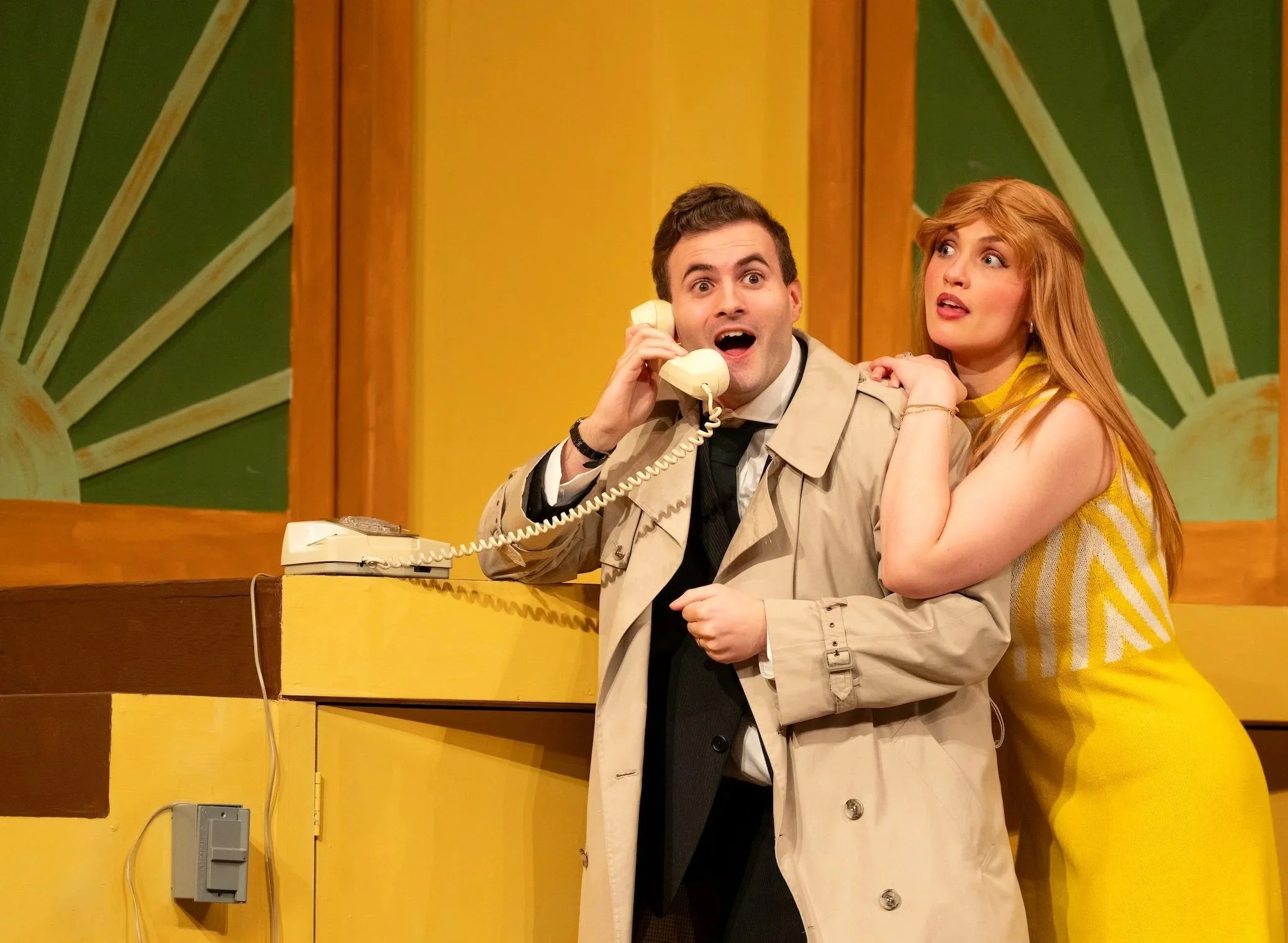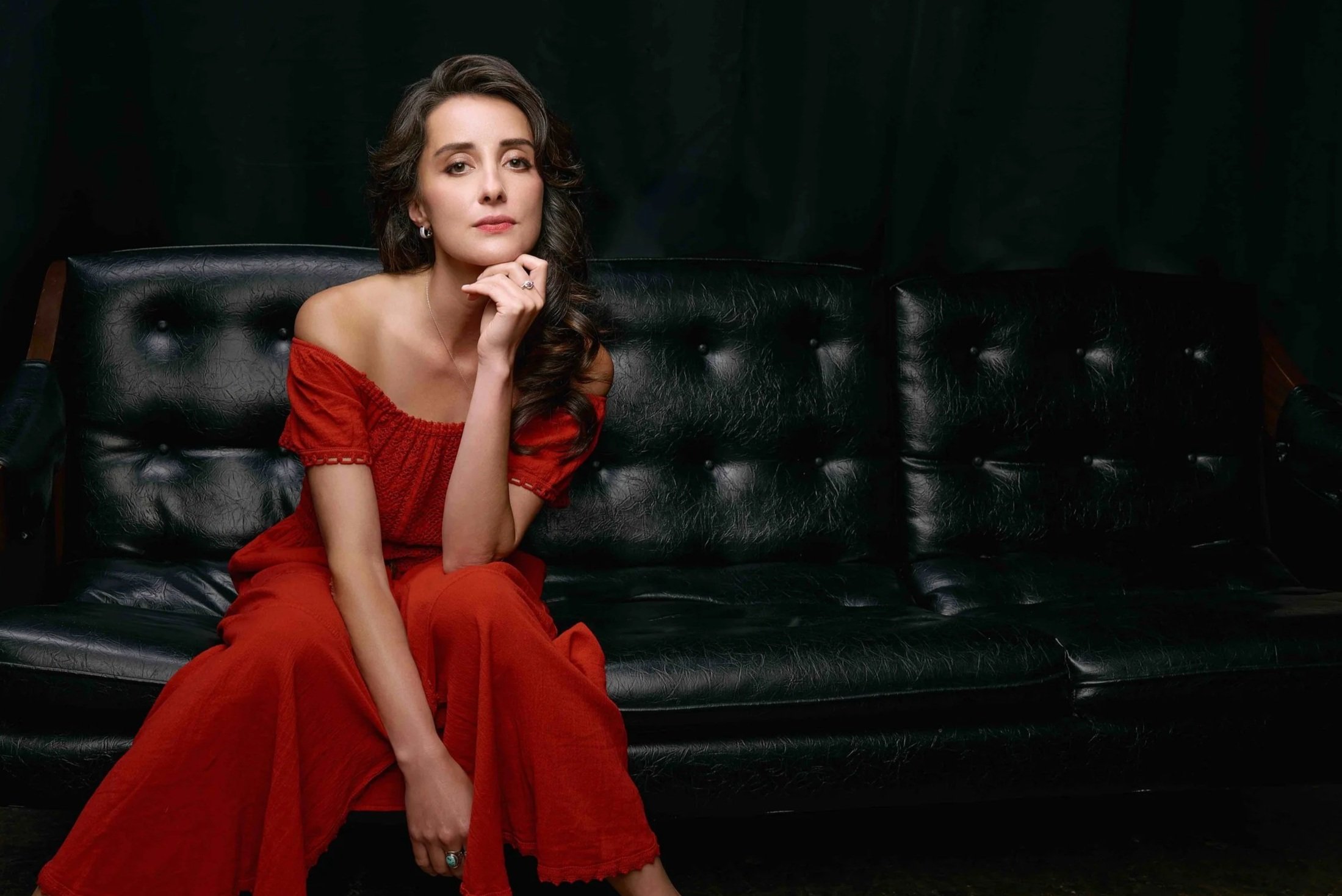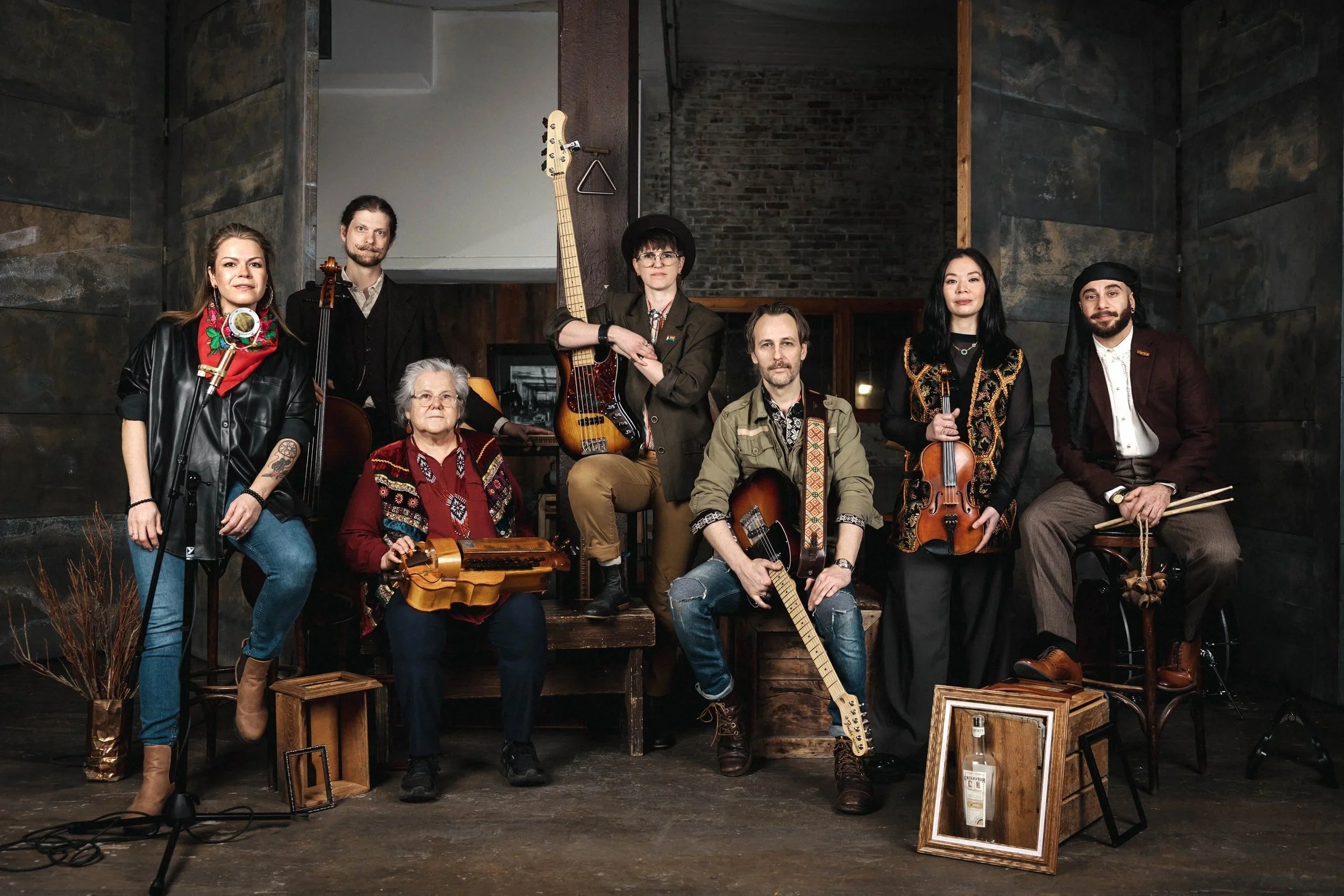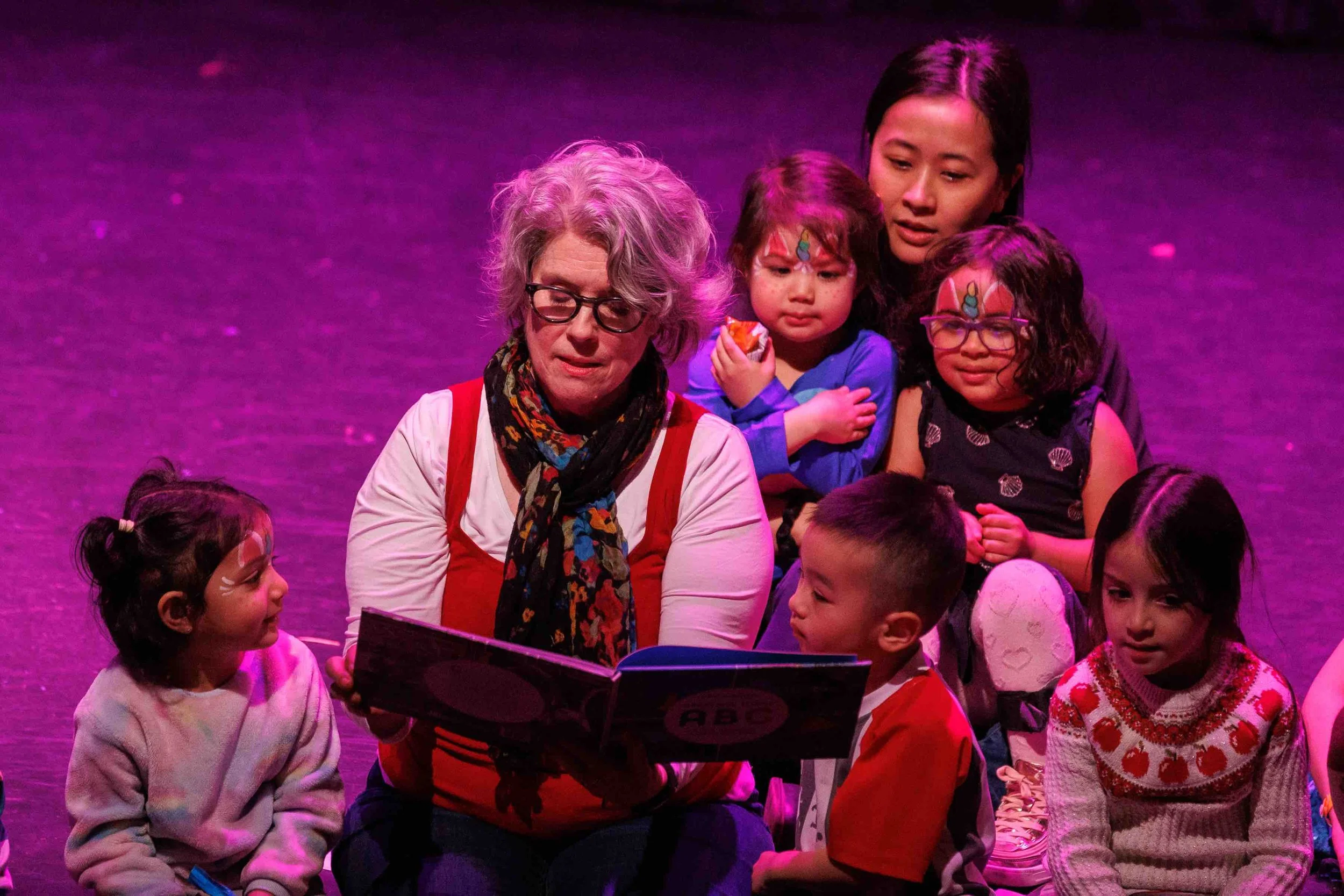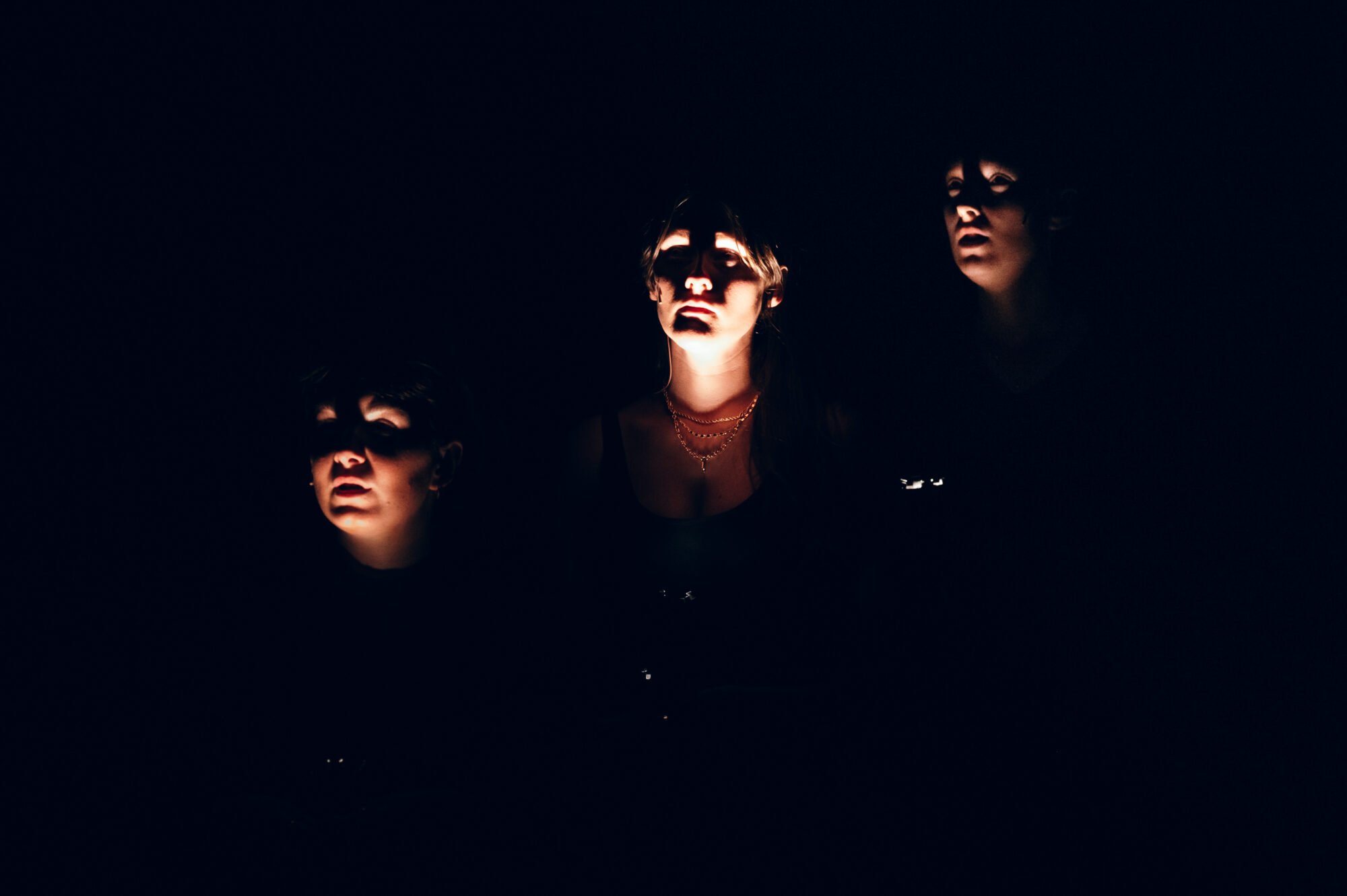Theatre review: Chelsea Hotel: The Songs of Leonard Cohen's dreamlike tribute still holds poetic magic, at the Firehall Arts Centre
Tracey Power and Steven Charles’s sung-through musical, first staged in 2012, returns with its inventive staging and intimate interpretations of Cohen’s songs
Jack Garton and Adrian Glynn McMorran in Chelsea Hotel: The Songs of Leonard Cohen. Photo by Sarah Race Photography
Chelsea Hotel: The Songs of Leonard Cohen is at the Firehall Arts Centre to March 3
“HOW CAN I BEGIN anything new with all of yesterday in me?” asks Adrian Glynn McMorran, in Firehall Arts Centre’s Chelsea Hotel: The Songs of Leonard Cohen.
In this poetic, sung-through musical, McMorran plays a writer tormented by memories of his past muses, unable to write anything new until he finds closure and peace. Originally presented on the Firehall stage in 2012, and performed across Canada since, Chelsea Hotel pays fitting tribute to one of Canada’s greatest singer-songwriters, interpreting Cohen’s songs in ways that are occasionally haunting, other times zany or uplifting, and always deeply romantic.
Located in New York, the famed Chelsea Hotel housed many legendary artists throughout the 20th century, including Arthur Miller, Bob Dylan, Janis Joplin, and Cohen himself. In fact, Cohen’s song, “Chelsea Hotel #2”, was inspired by his relationship with Joplin. Recognizing the significance of the hotel in Cohen’s life and work, show creators Tracy Power and Steven Charles have set their musical in one of the hotel’s rooms.
When we first meet McMorran’s character, he lies on the bed, towered over by a mountain of crumpled pieces of paper, with a replica of the neon-lit “Hotel” sign inserted into this paper mountain. Thanks to set designer Drew Facey, the set reads like an art installation piece, with beautiful quirkiness and intrigue that matches the show itself.
Under Power’s direction, the production takes inspiration from theatrical clowning, with offbeat characters, physical energy, and stylized visuals that lift us from reality. All in his head, McMorran’s character sees himself surrounded by the hotel’s service staff—played by performers donning white makeup—who transform into multiple characters throughout the show. Our host here, akin to the host clown in a circus show, is the terrifically animated Jack Garton, dressed as a bellhop and often playing the accordion. Marlene Ginader, and Michelle Bouey and Power—the latter two outfitted in Facey’s striking French-maid-like costumes—play the women from the writer’s past. The trio takes turns performing with McMorran to recount previous relationships, with some stories interpreting an entire song such as “Suzanne”. Other tales play out in montages, including one where Power and Bouey, suitcases in hand, enact the action of the revolving door of the writer’s love life.
The reimagining of each song sees thoughtful deliveries from each performer. Staging is inventive, especially in a burlesque-themed number performed by Power, and in a vaudeville-style soft shoe number where Garton, Power, and Bouey’s expressions range from overly animated to deadpan.
The through line of Chelsea Hotel is the writer’s relationship with Ginader’s character, and the dynamics are complex, ranging from sexually charged to playful, and ultimately very touching. It’s this relationship that catalyzes “Chelsea Hotel #2”, arguably the show’s highlight. The tenderness of McMorran’s singing and the sensitive joy Ginader exhibits make for a poignant moment, especially with Ginader wearing a costume that hints at a wedding dress. Throughout the show, McMorran is captivating in a role that, although inspired by Cohen, is not intended to be him. The amount of material that McMorran performs is huge, and he’s excellent in his singing and characterization, often while playing guitar. Likewise, Ginader, who plays the violin in addition to singing gorgeously, delivers a powerful performance that’s rich with layered characterization.
Like McMorran and Ginader, the rest of the cast all sing Cohen’s work extremely well, and most also play instruments—an impressive feat. Some standout performance qualities include Bouey’s phenomenal voice and engaging stage presence. In addition to his role as co-creator, Charles multitasks adeptly, leading the company as musical director while also performing alongside them.
While Chelsea Hotel is visually stunning thanks to Facey’s set, John Webber’s lighting, and Power’s staging, nothing feels inappropriately grandiose. During Charles’s heartfelt performance of “Famous Blue Raincoat”, cast members hold up umbrellas onstage, continuing the threading of clowning devices. But the delivery is intimate, making us feel as if we’re right there in the dimly lit hotel room. The show’s abstract conceptualization produces a dream-like quality—so much so, that when the house lights come up, you’ll feel awakened from your stay at Chelsea Hotel and perhaps inspired to take the pen in your own hands.
Jack Garton, Marlene Ginader, and Adrian Glynn McMorran in Chelsea Hotel: The Songs of Leonard Cohen. Photo by Sarah Race Photography







